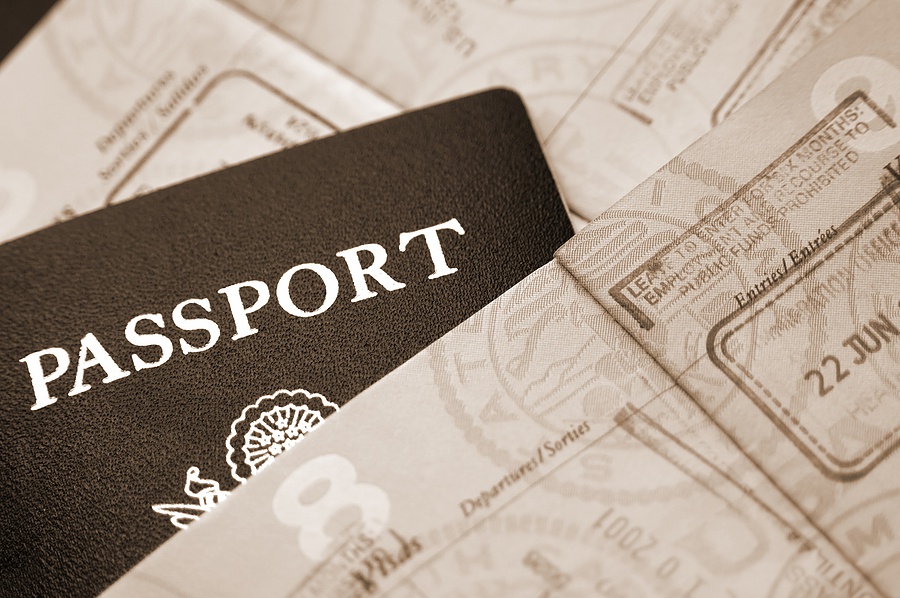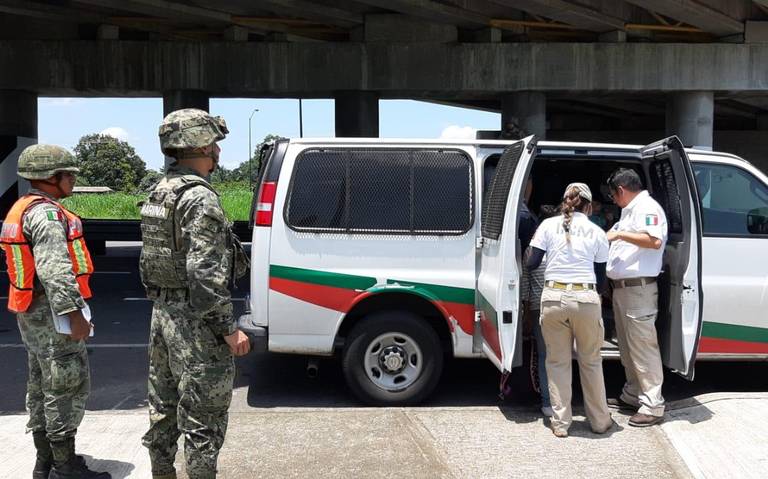Introduction
Felon Travel To Mexico, Tourism is the dream of every individual in the universe, whether they can travel or not, .but they travel all in the world in their plan because they can not fly. However, a world tour or a specific tour of any country is always the dream for many of us, especially countries rich in history with ancient civilizations like the Maya civilization. You all understood; yes, it’s Mexico.
The famous country all over the world for its unique landscape, spring, and the Mexican cushion known world wild and ava,ible in multiple variants all over the world, but if you are in search of authentic Mexican spicy food and spice lover, you identify travel to Mexico. But the question arises that it’s Mexico, all tourists in their country.
What a falcon do if they want to visit the most famous country in the world, Mexico? In this article, we discuss felons can travel to Mexico. Today we all discuss falcons in Mexico, so if you are a falcon and your dream is to travel to an ancient country for its unique culture, this article will be complete for you, so let’s explore can felon travel to Mexico.
Entry Requirements
Before discussing felons traveling to Mexico, it’s better to understand some primary and general requirements to felon travel to Mexico for all travelers because Mexico is strict in their travel requirements to this country, including the superpower of the united states of America nationals. And the rules and regulations are made by the national institute of Migration in Mexico. It should be full fill by all over counties travelers who are traveling to Mexico, so here are some basic requirements which are as follows.
As of my last update in September 2021, I can provide you with some general information about entry requirements for Felon Travel To Mexico. However, please note that immigration policies and regulations may change over time, so it’s always essential to verify the latest information from official sources before making any travel plans.
In general, felon travel to Mexico does not have strict entry restrictions specifically based on someone being a felon. However, there are still some essential points to consider:
- Passport Requirements: All travelers, including felons, need a valid passport to enter Mexico. Make sure your passport is up-to-date and has sufficient validity remaining for the duration of your stay.
- Tourist Card or Visa: Depending on your nationality, you might need to obtain a tourist card or visa before entering Mexico. Citizens of certain countries can enter Mexico visa-free for short stays (usually up to 180 days). Check the Mexican embassy or consulate website to see if your country is eligible for visa-free entry or if you need to apply for a visa beforehand.
- Criminal Record and Entry Denial: While Mexico does not have specific entry restrictions for felons, travelers with certain criminal convictions may still encounter issues at the border. It’s important to be aware that Mexican immigration authorities can deny entry to any traveler they deem a risk to public safety or national security.
- Declaration of Criminal Record: Mexico does not routinely ask visitors about their criminal history at the border. However, if asked, travelers should be honest and declare any past convictions if required to do so.
- Transit through Other Countries: If you have a criminal record, you should also consider the rules and regulations of any countries you might transit through on your way to Mexico. Some countries have strict transit policies for individuals with certain Felon Travel To Mexico convictions.

Visitor Identity And Visa
All visitors must have a valid original passport to enter Mexico, Felon Travel To Mexico, irrespective of their criminal history. The Forma Migratoria Multiple (FMM), sometimes referred to as a tourist card, is another document that Americans traveling abroad must complete. Usually, airlines offer this card, but it is also available at the Mexican border crossing. A visitor may enter and remain in Mexico for a maximum of 180 days for tourist or commerce with the help of the FMM, which is an immigrant passport.
Like any other traveler, felon travel to mexico must comply with the standard entry requirements. This includes having a valid passport with sufficient validity, obtaining a Tourist Card (Forma Migratoria Múltiple – FMM) at the port of entry (if required), and adhering to the visa policies based on their nationality and purpose of travel. It’s important to note that Mexico generally does not inquire about a visitor’s criminal history upon entry.
However, if asked, travelers should be honest and declare any past convictions if required to do so. As immigration policies may change over time, individuals with concerns about their eligibility to felon travel to Mexico with a felony conviction should seek the most up-to-date information from official sources, such as the nearest Mexican embassy or consulate, and may consider consulting with legal professionals or Mexican authorities for specific guidance
Felon Entry Regulations
No special entrance restrictions apply to convicts or people with
. As a result, felon travel to Mexico, having been convicted of a felony does not automatically bar someone from accessing the nation. It is essential to remember that Mexican immigration officials can refuse entrance to anyone they deem unwelcome, even individuals with specific past convictions.
Felon travel to mexico, It’s essential to understand that each country has its own set of rules and regulations regarding entry for individuals with criminal records, including felonies. Here are some general points to consider:
- Visa and Entry Requirements: Some countries may have specific visa requirements for individuals with criminal records, while others may not. Some countries may deny entry to individuals with certain types of criminal convictions, while others may evaluate each case on an individual basis.
- Declaration of Criminal Record: Some countries may require travelers to declare their criminal history when applying for a visa or at the border. Providing false information or failing to disclose a criminal record when required to do so can lead to serious consequences, including deportation.
- Waivers and Pardons: In some cases, certain countries may offer waivers or consider pardoning individuals with past convictions, allowing them to enter the country under certain conditions.
- Length of Time Since Conviction: Some countries may consider the length of time that has passed since the conviction when evaluating an individual’s eligibility for entry.
- Reason for Travel: The purpose of the trip can also be a factor in determining whether someone with a felony conviction can enter a country. For example, travel for tourism or business may have different requirements than travel for study or work.
It’s important to understand that this information can change over time, and each country may have unique and evolving immigration policies. Felon travel to Mexico Therefore, individuals with felony convictions who plan to travel internationally should check the specific entry regulations of the country they intend to visit. The best source of information is typically the country’s official immigration website or the nearest embassy or consulate. Additionally, consulting with a legal professional with expertise in international travel and immigration can provide valuable guidance.
Mexican Immigration Authorities’ Evaluation Of The Risk
Visitors are subject to Immigration to Mexico scrutiny when felon travel to Mexico at the port of entry. Immigration officials in Mexico can verify people’s backgrounds in any way they see fit, including by accessing networks like the Police. Depending on the person’s risk, the authorities may refuse admission if a criminal record is discovered during these screenings.
Mexican immigration authorities conduct an evaluation of the risk posed by each traveler seeking entry into the country. This evaluation aims to ensure the safety and security of Mexico and its citizens. While Mexico does not have specific entry restrictions based on someone being a felon, immigration officials may scrutinize certain aspects of a traveler’s background, such as criminal history, to assess potential risks.
During the entry process, travelers may be asked routine questions, including the purpose of their visit, the intended duration of stay, felon travel to Mexico, and any previous travel destinations. While Mexican immigration authorities do not routinely inquire about criminal history, they have the discretion to deny entry to any individual they deem a risk to public safety or national security.
It is essential for all travelers, including those with a criminal record, to be honest and forthcoming during immigration inspections. Attempting to conceal relevant information could lead to serious consequences, including denial of entry, deportation, or potential legal issues within the country.
Felon Travel To Mexico, it’s essential for travelers to respect and comply with Mexican immigration laws and regulations. If an individual has concerns about their eligibility to enter Mexico due to a felony conviction or any other reason, seeking advice from legal professionals or contacting the nearest Mexican embassy or consulate can provide clarity and guidance.

What Felony Should Individuals Be Required To?
Although Mexico is very strict with their tourist if they are Felon Travel To Mexico, if you are a Falcon and complete your prison time and promise that, Mexico doesn’t stop you, but if you have ongoing charges or heavy crimes, you do. You are a massive problem because Mexico banned them from entering.
If you do murder, drug dealing, public distribution, and many more, like breaking prisons and burglary charges, then Mexico is closed for you, and you should improve your profiles. So start working on it.
Mexican Immigration Authorities’ Considerations
The seriousness and type of the crime committed are crucial factors. Entry refusal is more likely in violence or crimes connected to drug-human trafficking, criminal groups, or terrorism.
The amount of time that has passed since the felony conviction is considered. The probability of entry permission may improve with a longer time since the offense, as it shows a potential for recovery and a lesser danger.
Felon travel to Mexico, Immigration officials may take the person’s total criminal history into account. A history of illegal activity or multiple convictions may impact their choice.
The purpose of the journey is also assessed. Entry may be refused if the reason is unlawful or causes suspicion, such as taking part in the trafficking of illegal drugs.
The individual’s conduct and subsequent deeds have an impact. Being rehabilitated, abiding by the law, and making constructive contributions to society might be motivating considerations.

Provision Of Legal Aid And Waivers
It is advised to obtain legal counsel if a convict wants to visit Mexico but is still determining their eligibility. A knowledgeable immigration lawyer may offer advice, evaluate particular circumstances, and assist in choosing the best course of action. People may be qualified to request a waiver, usually called a “special permit,” in specific circumstances. Criminally inclined people with a criminal past are given temporary entry permission by the INM. However, requesting a waiver can be difficult and time-consuming and does not ensure admission.
If is planning to felon travel to Mexico and has concerns about their eligibility, it is advisable to seek legal advice from qualified professionals familiar with both Mexican and international immigration laws. Legal experts can provide personalized guidance based on the individual’s specific situation and criminal record.
In some cases, there might be processes or options available for travelers with criminal records to request waivers or special permissions for entry into Mexico. These waivers, if applicable, would be evaluated on a case-by-case basis by Mexican immigration authorities. However, such decisions are typically at the discretion of the authorities, and there is no guarantee of approval.
It’s crucial to note that immigration policies can change over time, and new developments may have occurred since my last update Felon Travel To Mexico. To obtain the most accurate and up-to-date information regarding travel to Mexico with a felony conviction, it is best to consult official sources, such as the nearest Mexican embassy or consulate, or seek advice from legal professionals experienced in immigration matters.
What’s To Improve Profiles To Get A Mexican Visa
Their reintegration and development as individuals are essential factors that the Mexican immigration authorities take into account when determining whether convicted felons are eligible for a tourist visa. Criminals can show they are committed to positive change by strongly emphasizing personal development Felon Travel To Mexico.
Such as going to counseling or therapy, pursuing school or vocational training, and actively taking part in initiatives that support reintegration into society. This demonstrates a willingness to live by following the law and can help guide decisions.
Despite receiving a criminal conviction, one’s reputation can be improved by continually abiding by the law. Felons can demonstrate their commitment to lawful behavior by diligently adhering to all rules and regulations, including paying fines, finishing their parole or probation, and meeting other court-imposed conditions.
Felon Travel To Mexico, one might show Mexican immigration officials that they are dealing with someone who has made mistakes in the past and is dedicated to acting responsibly and within the law.
A felon’s reputation can be significantly enhanced by obtaining solid letters of reference and character references from people who can attest to their metamorphosis and rehabilitation. These references could be provided by former or current employers, instructors, counselors, or community members who can attest to the person’s positive improvements, personal development, and moral character.
Such recommendations can help influence the final choice of Mexican immigration agencies in favor of the Felon Travel To Mexico and reveal important details about their dedication to a new route in life.
To successfully navigate the process of acquiring a Mexico tourist visa as a criminal, it can be helpful to seek legal advice and expert direction from an experienced immigration attorney. An attorney can offer individualized counsel, evaluate particular circumstances, and assist people with the application procedure.
To increase the likelihood of a favorable outcome, they can also advise on how to make a compelling argument and assist with preparing the essential paperwork.
Conclusion : Can A Felon Travel To Mexico
Can A Felon Travel To Mexico, So if you are a felon and involved in any criminal activity and want to visit Mexico once in your life, leave the crime. If you already leave, wait for a good time to go to Mexico, and don’t lose hope. In this article, you may get lots of information and know the ball is in your cord whether you want to leave it.
However, like any other traveler, they must adhere to the standard entry requirements, including having a valid passport, obtaining a Tourist Card (Forma Migratoria Múltiple – FMM) at the port of entry (if required), and complying with visa policies based on their nationality and purpose of travel.
Mexican immigration authorities may evaluate the risk felon travel to mexico posed by each traveler during the entry process, and while they do not routinely inquire about criminal history, they have the discretion to deny entry to individuals they consider a risk to public safety or national security.
Travelers, including those with a criminal record, are advised to be honest and forthcoming during immigration inspections. Attempting to conceal relevant information could lead to serious consequences, including denial of entry or deportation.
However, immigration policies can change over time, and it’s possible that new developments have occurred since my last update. Therefore, it is crucial for felon travel to mexico or anyone with concerns about their eligibility to travel to Mexico to verify the most up-to-date information from official sources, such as the nearest Mexican embassy or consulate, before making any travel plans.




















